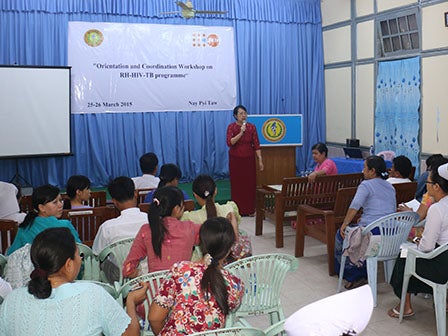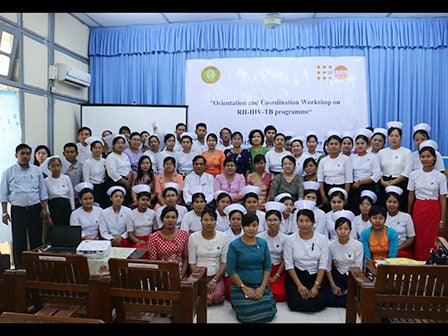U Than Htay, a Health Assistant from Tatkone Township in Nay Pyi Taw Region, almost forgot about the intense heat outside as he focused on the lecture by Dr. Theingi Myint, the focal person for Maternal and Reproductive Health Unit of the Ministry of Health. She explained the importance of reproductive health and also the difference between maternal and child health and reproductive health - the latter covering the whole life span of men and women, from ‘womb’ to ‘tomb’ which is also known as the lifelong healthcare approach. U Than Htay is one of nearly a hundred healthcare personnel who attended the two day ‘Reproductive Health, HIV, Tuberculosis Orientation and Coordination Meeting’ facilitated by UNFPA in Pyimana at the end of March 2015. Township medical officers, senior medical officers, basic health staff personnel, lab technicians and midwives from all eight townships of Nay Pyi Taw Region attended.


After the two day meeting Dr. Myat Htoo, the Senior Medical Officer from Yesin Area stressed the importance of adolescent reproductive health: “My area has many universities…students come to our hospital for the advice on reproductive health. We would take advantage of those occasions to provide information on HIV and STDs. In the future, we shall have talks on reproductive health for adolescents and youth in universities. This is important for young people.” As he was about to leave for Tatkone, U Than Htay looked forward: “This gave us a very good learning opportunity. Previous workshops and trainings focused on a program, not on the coordination with other programs. I am going to share information to skilled birth attendants, lady health visitors so that HIV and STD prevention can be linked to other services.”
UNFPA will facilitate more RH-HIV-TB coordination meetings across the country in the near future to further facilitate integration of services.




